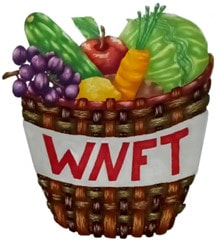 Yesterday, a dear friend posted on Facebook that she was angry because Obama was badmouthing Trump and America in his speech in Germany. I looked up the speech and tried to find any negative comments, but the closest I heard was "concern." I'm a fan of Obama and she's not. She voted for Trump and I don't think he's qualified. But we care about each other and accept our different political opinions. The situation made me wonder, though, whether she was hearing an accurate broadcast of the speech? I still don't know what he said to upset her, and I'm still trying to find out. I'm one of those freaks who digs at an issue until I fully understand it. This may take a while. Social media is becoming the window to the world for a huge chunk of the population. It's the easiest way to interact and to find out what people are talking about. But it isn't "the news." The ability for anyone to publish anything they like, regardless of truth, is a huge problem facing the education and enlightenment of America. The problem is exacerbated by selective feeds, from social media and from trusted news outlets -- they suggest the news they think we want to see based on our previous choices. (Obama mentioned this is his speech yesterday.) When I do a Google search, I want to see unbiased information. I want my Facebook newsfeed to show me everything going on in my community and with my friends, not just the stuff I like. But that's not how they work. The result is that we have to question EVERYTHING we read and hear. Here are some pointers to identify biased, satirical, and otherwise untrue statements, compiled by Melissa Zimdars, a communication and media professor from Merrimack College in Massachusetts. Tips for analyzing news sources:
If you're a Chrome user, here's an extension that will notify you when your news is coming from one of the not-always-the-truth sites, including humor, satire, and opinion pieces: https://chrome.google.com/webstore/detail/fake-news-alert/aickfmgnhocegpdbfnpfnedpeionfkbh Please judge and share news responsibly. It's more important now than ever.
0 Comments
Leave a Reply. |
AuthorSusie Snortum is passionate about improving society's compassion for meeting basic human needs -- food, shelter, clean water, and dignity. Archives
September 2020
Categories |
We appreciate your support!
Hours
|
Telephone
|
Email
|
ADDRESS: 17850 NW Park View Blvd, Portland, OR 97229 United States

 RSS Feed
RSS Feed